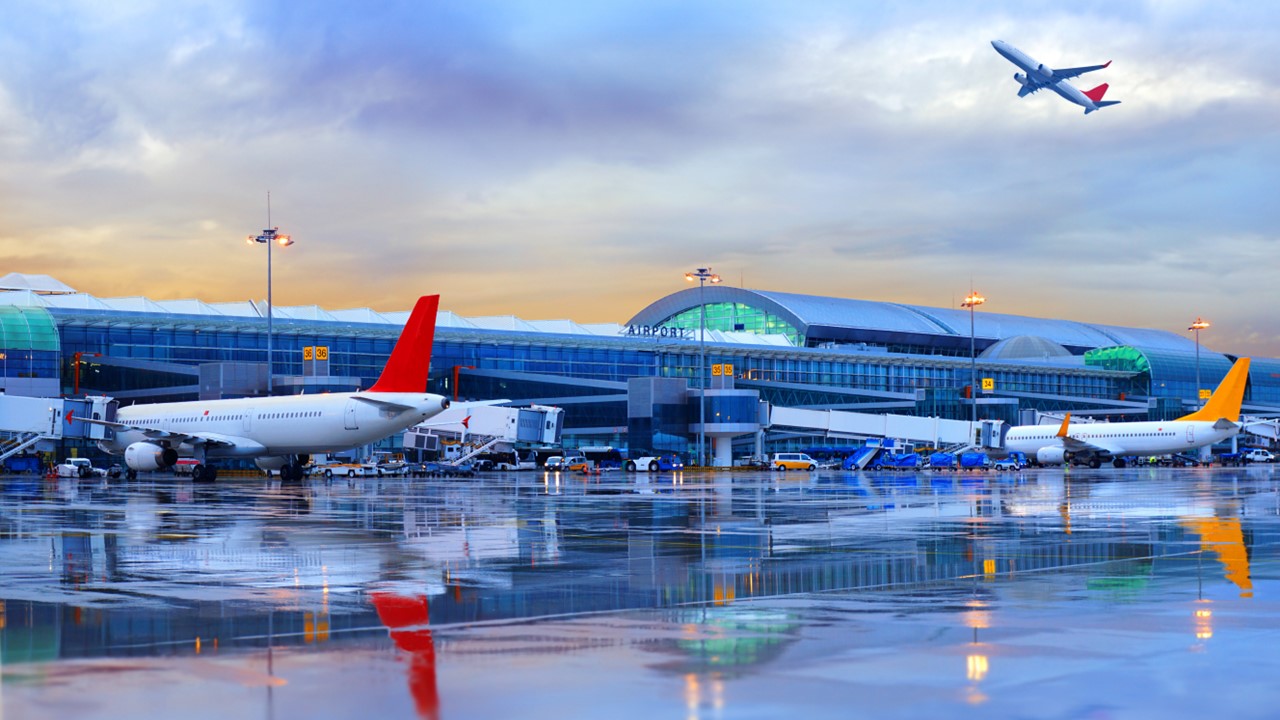Business travel is subject to a myriad of influences including sustainability directives, technological advances, and hiring - all converging to redefine buying strategies and traveler expectations. All considered, cost saving remains a top priority.
An October 2023 poll of over 860 global business travel buyers, suppliers, and other industry stakeholders from 46 countries shared their insights with the Global Business Travel Association (GBTA). The findings point to a ‘stronger' 2024 with nearly three-quarters of buyers expecting their travel budgets to increase or hold steady next year, and most said they don't expect economic concerns to limit business travel at their company. Despite a positive outlook the top barrier identified was corporate budgets struggling to keep up with price increases (69%).
The CWT GBTA Global Business Travel Forecast 2024 predicts airfares will rise globally by 8.4% in 2023. It’s understandable therefore that for many the allure of the cheapest flight, or not travelling at all, trumps other considerations. Cost saving is one reason why some no longer compare volumes today to 2019. One airline that’s surpassed its pre-pandemic volumes, however, is Qatar Airways.
Mr. Matt Raos, SVP Global Sales at Qatar Airways believes that focusing on the bottom line alone has the potential to impede a holistic approach to successful and sustainable travel management as we enter 2024.
The second largest member of oneworld Alliance, a group of 12 major airlines, Qatar Airways recently expanded its online network from 125 to 163 destinations and doubled its fleet from 125 to 259 aircraft.
To help travel managers plan for the future we asked Mr. Raos to identify a few of the top trends in air travel today.
Cross-cultural alliances
Whether it’s a decline in one-day trips or a rise in incentive events to boost morale among hybrid and remote teams, travel patterns are shifting. Relationship building remains a key reason people travel for business, especially across cultures.
A 2020 Oxford Economics study designed to measure the return on investment of global business travel found that companies reap $12.50 in incremental revenue for every $1 invested in business travel revealing a clear link between international business travel and growth. Multinational clients see the benefits.
“We're very much in the business of long-haul, international, and cross-cultural travel,” says Mr. Raos, “It might be between Southeast Asia or Australia and Europe, between China and Africa, or China and Latin America, or between the Indian subcontinent and North America. These travellers are nearly always going cross-culturally, and nearly always client-facing. As anyone who's tried to do a Zoom call across cultures, it's hard enough building relationships on this kind of call when you're within the same language. But once you start doing that across cultural dimensions, the value of face-to-face increases.”
The fastest route to new business
Air connectivity is key to boosting a country’s economic growth potential by attracting business investment and human capital. Qatar Airways has rapidly expanded its route network in recent years which is proving a boon to business travel.
Qatar Airways flies to more cities and more frequently in the Americas compared to pre-pandemic times, and offers more connectivity through its strategic airline partnerships. There’s also an increased emphasis on adding new routes in Africa. For example, previously flying only to Lagos, Qatar Airways has added four cities in Nigeria. There are also new routes and increased frequencies in the Middle East, including to key metro cities like Riyadh, Yanbu, Tabuk, Neom, Dammam and Jeddah.
Easy access to new markets is important to global organizations, “What we've achieved, particularly in the last few years with the combination of the network and commercial offerings, and the approach to the market, particularly with an emphasis on being a reliable business partner fits quite nicely into growth compared to pre-pandemic,” says Mr. Raos.
There’s also a sustainability and carbon reduction benefit to new routes as connecting new destinations helps cut emissions on longer routes.
Attracting top talent
“What’s more of a feature now is the travel experience that companies are prepared to invest in with their employees, “says Mr. Raos, “There have been financial downturns where business travel has been heavily driven by cost considerations. In the current economy, we've noticed that some companies are looking at how their travel policy looks after their employees. Travel is being approached through an ‘employee benefits’ lens. We’re seeing this in some industries more than others such as the technology industry. Where historically nearly everyone had an ‘all economy class’ policy, some tech companies are looking at what benefits they can provide their employees in terms of work and life experience.
Managing corporate travel comes with its fair share of costs and considerations from basic airfare to wellbeing and sustainability. While business travel is a cost it’s also an investment for companies as they grow their business with a complex set of decisions attached. “There’s no one size fits all for everyone, says Raos, “Each company needs to work through its own considerations. But ultimately it pays to focus on business trips that provide return on investment, create experiences that attract talent and enable employees to be productive and there's value in having a reliable, credible business partner, by your side, as you map out those decisions.”




